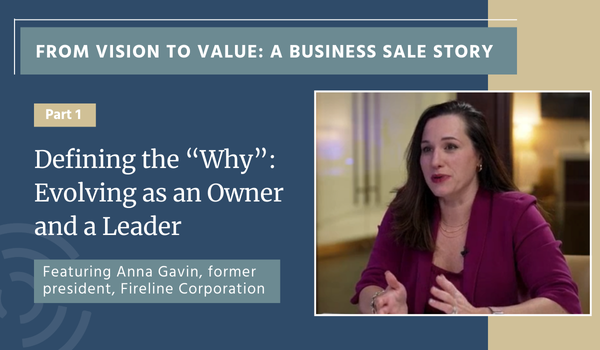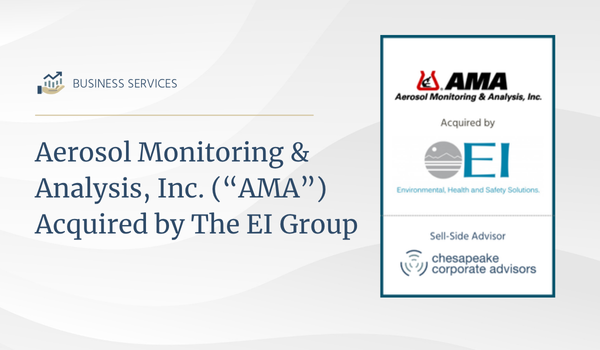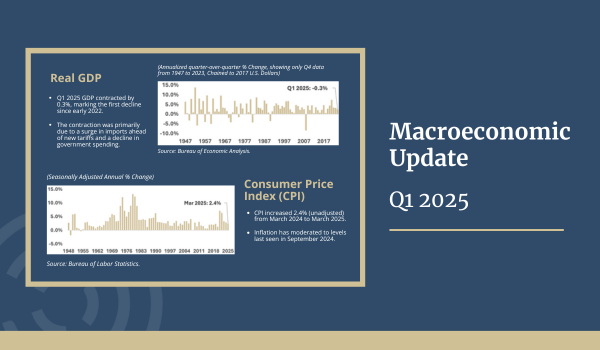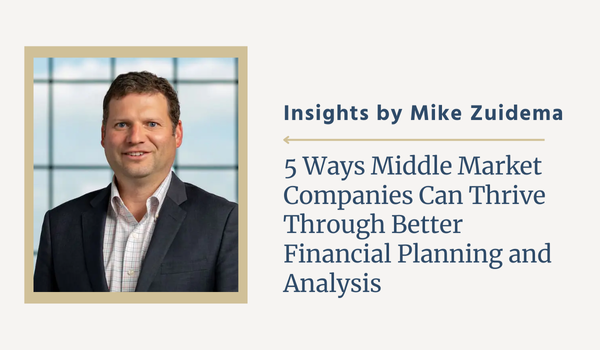Private equity (PE) firms are investing in middle market businesses at a healthy pace despite a high interest rate environment that makes it more costly to finance deals. If you are looking to sell your business, PE firms are likely to be among the interested buyers.
PE firms view a target business in one of two ways: as a potential platform company or as a business they will “bolt on” to their existing platform. Before you consider any offers to buy your business, it is important to understand the differences between these private equity acquisition strategies and how each will impact your liquidity at closing and your involvement in the company going forward.
First, Some PE Fundamentals
PE investment in the middle market is defined by a fairly common set of criteria. These investors are attracted to well-run businesses with positive cash flows, a diverse customer base, and strong industry tailwinds. Businesses primed to take advantage of strategic growth opportunities (given sufficient capital) or operate in a fragmented market that is ripe for consolidation will be even more appealing to PE investors.
When a PE firm purchases a business, the intent is to grow the company substantially (through organic growth and acquisitions) and quickly (usually within three to seven years) with the goal of a successful sale, to another PE firm, a strategic buyer, or through an Initial Public Offering (IPO).
Platform Company: More Potential Payout, More Long-Term Involvement
A PE group establishes a platform company to serve as a foundation to build on, bolting on smaller businesses that expand the platform’s product offerings, customer base, or geographic reach. This is often called a “buy and build” approach. Sometimes PE investors establish a platform company to gain an initial foothold into an industry; other times, the group has already scaled and sold platform companies in this sector and is ready to repeat the process.
If your business meets criteria such as the following, a PE group is likely to view your company as a potential platform:
- Your business is relatively mature, with a solid infrastructure and effective operational processes in place.
- You have achieved some degree of scale in the markets you serve.
- Your management team is strong and capable of leading the organization through the next phase of growth
- Your earnings before interest, taxes, depreciation, and amortization (EBITDA) is more than $5M.
Becoming a PE group platform company will impact you as the seller in two important ways.
- Less upfront liquidity, more future payout potential. Since a platform company is the PE group’s star investment, the investors expect you to make a significant commitment to growing the enterprise. In return, you will agree to roll over as much as 20-35 percent of the deal value as equity in the new business. By accepting less liquidity upfront, you gain the opportunity for a “second bite of the apple” when the investors sell the platform company. The total return potential is higher, but the risk is greater because a smaller percentage of the payout is guaranteed at the time of the first closing.
- More direct involvement for a longer timeframe. The PE group will expect you to remain on board and work closely with their portfolio team to enhance the business through internal initiatives (like improving processes and driving organic growth) and by helping evaluate acquisition opportunities. Since the platform company is the primary investment, you will continue to have input into the business’s strategic direction, along with the associated responsibility. If your goal is to stay involved in a substantive way after the deal closes, a platform acquisition might be the optimal deal structure for you
Bolt-on Company: More Upfront Liquidity, Faster Exit
Alternatively, a PE platform company might acquire your business as a bolt-on that can help drive revenue growth and operational efficiencies and make the platform more appealing to a buyer. The first order of business will be to integrate your company into the platform, which typically takes 6-18 months. In industries like government contracting, PE groups often run the bolt-on company as a fully intact subsidiary for a longer period for contractual reasons.
When integrating a bolt-on into a platform, the PE group’s mantra is often to “do no harm,” taking measures to gain synergies and efficiencies without disrupting operations. In companies whose work is people-intensive (like many service businesses), the PE group might create incentives to retain critical talent during the transition.
Scenarios like the following would make your business a likely target of a PE bolt-on strategy:
- Your business would open opportunities for the platform to enter a new geographic market, serve a new customer segment, or introduce an innovative new service—making the platform more diversified and a more attractive target for a buyer.
- Though your business has achieved respectable growth, an infusion of capital would enable you to scale more aggressively.
- You have documented operational processes in place, but they are not as rigorous or efficient as they could be.
- Your EBITDA is in the range of $1M – $5M.
If you become a PE platform’s bolt-on acquisition, you can expect the following:
- More upfront liquidity, less payout potential. As the business owner you will receive more guaranteed cash upfront as a bolt-on, with most deals allowing you to roll over no more than 10-15 percent of the deal value. That means less long-term upside potential, but less risk since a higher percent of your payout is guaranteed at the time of the first closing.
- Ability to disconnect and exit sooner. If you prefer to move on from the business relatively quickly, a bolt-on scenario is a good option. You can rarely ride off into the sunset the day after the deal closes—since the PE group recognizes you can provide value during the integration period—but it would be unlikely you will not need to stay on board until the investors sell the platform. Whether it is an employment contract or a consulting arrangement, your involvement will be short-lived and you will have limited (if any) input into strategic decisions. It is possible the PE platform will also replace some of your executive team members as part of the integration process.
When you decide it is the right time to sell your business, it is helpful to know what different buyers will consider when evaluating your company and how they intend to operate the business going forward. An experienced investment banking firm like Chesapeake Corporate Advisors (CCA) will provide insight on the various private equity M&A strategies and what to expect of the process and the outcome—whether you sell to a strategic acquirer or a PE group and whether the PE group purchases your business as a platform or a bolt-on. If your goal is to become a PE platform company, our corporate advisory team can help you build greater value in the business and position it as a platform candidate.
About Chesapeake Corporate Advisors
Chesapeake Corporate Advisors is a boutique investment banking and corporate advisory firm providing strategic advisory services (value creation) and investment banking services (value realization) to companies with revenues between $10 million and $200 million.





